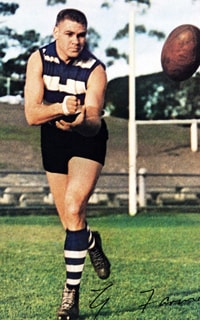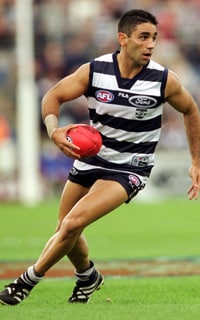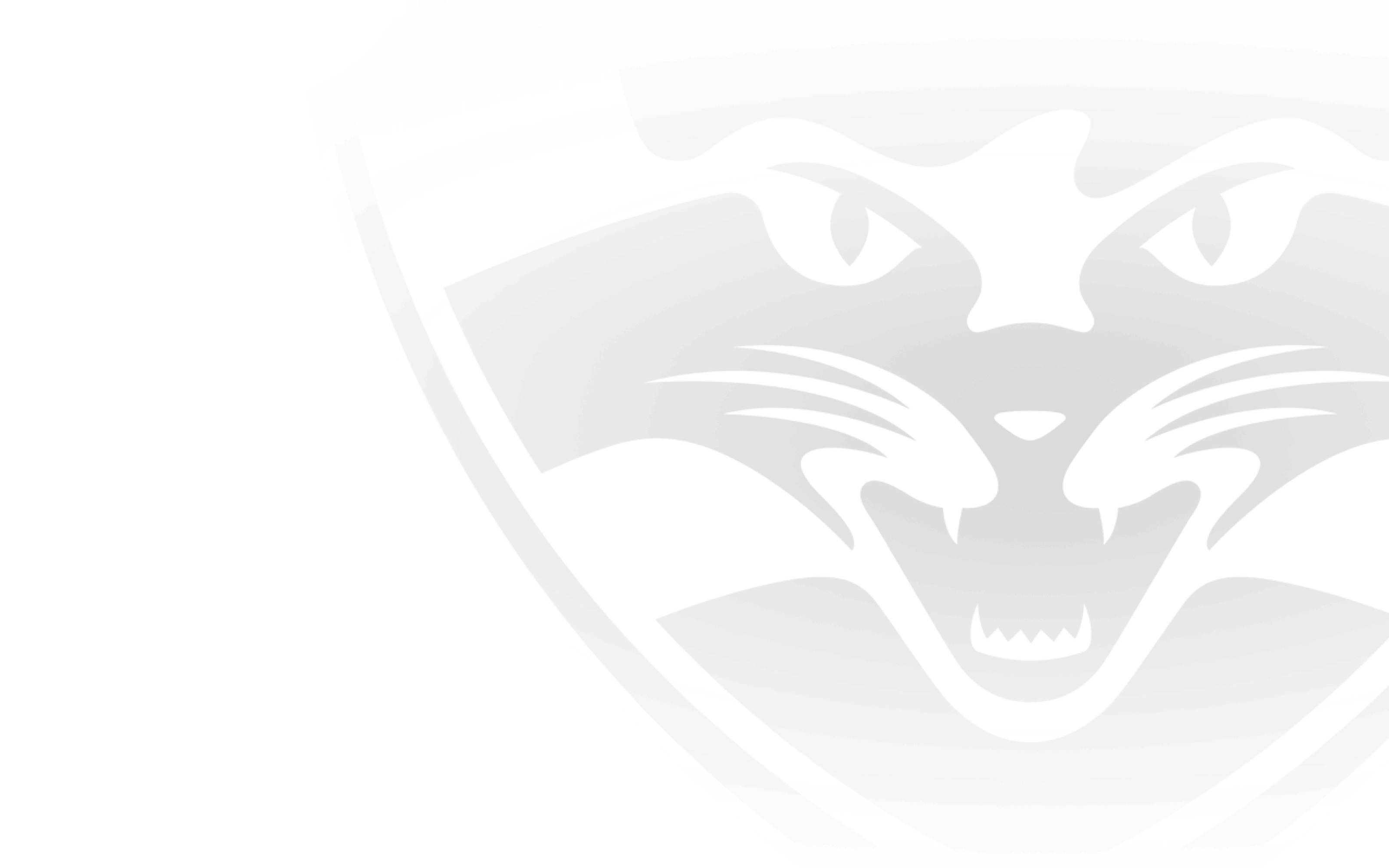Geelong Cats, together with the AFL, are celebrating Indigenous week to recognise Indigenous cultures and players across Australia.
Thirty-five years ago there were only two Indigenous players in the AFL, Colin Graham from Melbourne and Robert Muir from St Kilda, today there are seventy-nine.
Indigenous week is a significant celebration for the Geelong Football club, as it allows the club to thank the country’s Indigenous players, coaches and supporters for their valuable contribution.
On Monday at Victoria Park in Melbourne, 309 game-player, Nicky Winmar, highlighted a number of key messages, identifying the importance of this week’s Indigenous celebration.
“This year we are celebrating the theme identity, which recognises Indigenous cultures, customs and traditions, across the 320 nations and 500 language groups,” Winmar told AFL media.
“Indigenous Round is a celebration of our country's Indigenous players and their contribution, which has shaped Australia's Game - a game that unites us all, players and fans, standing as one.
“This week is also an opportunity for the players to share their stories about their own country and their Indigenous identity.”
Over the years, Geelong has seen many inspirational indigenous talents that have injected the field with formidable craftsmanship, including Graham Farmer (1962-67), Rod Waddell (1981-84), Ronnie Burns (1996-04) and Nathan Djerrkura (2009-12).
Today, Geelong has six Indigenous players, four of which play a key role in the Cats midfield, including Steven Motlop, Allen Christensen, Travis Varcoe and veteran Mathew Stokes, along with young draftees, Joel Hamling and Brad Hartman.
The leg power and speed that’s delivered by all four players continues to generate a captivating and dynamic spectacle. They hit the ground with conviction and help drive the game to another level.
For the first time, a traditional gift will be exchanged between Indigenous Port Adelaide and Geelong players, before Saturday’s clash at AAMI Stadium. The two Aboriginal gifts represent protection and safety, which is the spirit of competition endorsed by both clubs.

From left to right: Varcoe, Hamling, Motlop, Hartman, Christensen and Stokes.
One of the most inspirational indigenous players to ever play for Geelong, was Graham (Polly) Farmer. Bob Davis recruited Polly in 1962 where he went on to play 101 games for Geelong, including the Premiership victory in 1963. Polly also received the team’s Best and Fairest award in 1963 and 64, and one year later he was named Geelong’s captain until 1967. Polly was an admirable ruckman with an incredible leap. He was the Geelong player who reinvented the handball, turning it into a crucial component of the game. The handball was no longer regarded as a last resort option; it was now a key weapon. He would spend hours of the day handballing through car windows at the car yard he worked at, to perfect his technique.
Former Geelong player, Sam Newman, believes Polly Farmer is the most influential football player that Australian football has ever seen.
“Without speaking one word he (Farmer) taught me everything I know.”
“I watched how a man overcomes not the physical, not the mental, but the spiritual, that's the most important, he was an absolute star, about one decade, one century ahead of his time.”
Farmer later returned to Geelong in 1973 as senior coach, after 66 games he went back to his home in Western Australia. Farmer is still highly recognized today for his contribution, and was named at number five in the Age’s top football players of all time, in 2008.


Graham Farmer (Polly)
Ronnie Burns was another memorable player for Geelong, playing 134 games for the Cats and kicking 239 goals, from 1996 - 2002. Burns was highly regarded as Geelong’s goal kicking god, through a time that was less victorious for the Cats. He won the Geelong F.C Leading Goal kicking award five years in a row. Burns could snap a goal from the most absurd and difficult angles, and would often perform moments of utter brilliance. It was his speed and rapid reflexes that were most impressive to the eye, which always kept the fans on the edge of their seats. He was a gifted player who knew how to get the crowd excited and the Geelong fans adored him.

Ronnie Burns
Geelong's current Indigenous players:
Mathew Stokes (Northern Territory)
Debuted: 2006 Games: 139 Goals: 188
Travis Varcoe (South Australia)
Debuted: 2007 Games: 104 Goals: 114
Steven Motlop (Northern Territory)
Debuted: 2010 Games: 35 Goals: 41
Allen Christensen (Victoria)
Debuted: 2011 Games 44 Goals 41
Joel Hamling (Western Australia)
Brad Hartman (South Australia)


